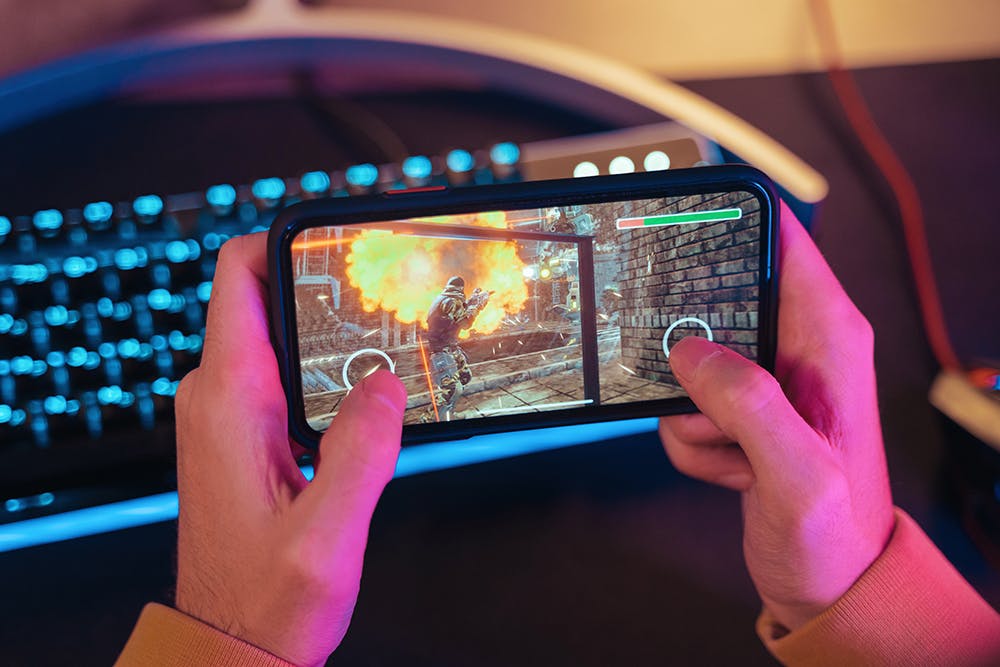Grand Theft AI, the birth of the new age of video games is here. Video Games have become one of the world’s largest tech booming industries, with current projections for industry revenue to reach over $380b in 2023 with over 3b users worldwide. With a wide dispersal of large corporates, ambitious development houses, and globally active investors, Gaming has become one of the most exciting areas within Tech.
The industry is poised to go through the most dramatic change since the creation of the Xbox 360: AI. Artificial Intelligence is poised to shake up the foundations of the industry. Electronic Arts CEO Andrew Wilson suggests that the gaming industry will become the largest beneficiary of AI incorporation. This is not limited to the listed community of video games developers. Q1 Funding for 2023 reached $761b from Venture Capitalists into the gaming market. Because the industry acts as the perfect crossover between DeFi, Consumer, and Growth Tech, Gaming will become a dominant player amongst the Early-Stage ventures.
Gaming has always been an ever-evolving concept. Prior to the birth of Play to Earn Gaming and Web2 Gaming, users were encouraged to buy a single game with a single storyline to play and to do so only for the love of the game. In the modern sense, a gamer has access to endless modifications, updates, online modes, and online interactions, evolving the experience to one that ensures a lasting impact and societal improvement for the gamer. Games have now become what the Arcade once was, a place within which individuals can be creatively expressive, passionate, and engaged. The influx of AI into these worlds will bring a level of reality wherein gamers’ choices will have a real impact, an emotional response from NPCs (Non-Playable Characters), and a lasting impact on the codes that drive the game.
Businesses such as Ubisoft and Square Enix are experimenting with AI mods for popular games such as Skyrim, making AI a focal point of the disruption within the industry by expediting and elevating efficiency when it comes to development of background noise, background art, and game design. These mods have enabled players to have meaningful and active ‘conversations’ with NPCs within the game itself. As a result, the dream of Web3.0 enthusiasts of a fully interactive online and digital experience has become one step closer with practical applications: as recently as 2020, OpenAI used Minecraft as a platform for training an AI model to perform a variety of tasks, including building structures and mining resources.
The enhancement opportunity of gaming experiences and services through the adoption of AI is enormous. With increased dynamism in gaming worlds built on the blockchain, AI will enable a world that is more responsive to player actions. Algorithms to predict behavior and modify gameplay based on the choices of each individual player create a more intuitive and enjoyable experience. Additionally, the adoption of AI into blockchain gaming comes with increased fraud detection capabilities, with those same algorithmic programs designed to detect fraudulent or suspicious behavior as is common with online Play to Earn games. With the adoption of AI into video game development, players will have the opportunity to engage with more intuitive and engaging content, thereby increasing business revenue, and expanding the world of web3, AI, gaming, and broader digital communities worldwide.
Video Games have long cemented their reign as king of the hill when it comes to digital entertainment, fending off challenges from the poorly executed Metaverse, NFT markets and Virtual Reality capabilities. These concepts were all ambitious, highly funded, and operated as a fad, or were poorly incorporated within the larger beast that is gaming. According to Forbes, the limitations of the Web3 functionality come through the quality of the games that the space enables users to access. Addressing gaming as a platform, Web3 games required an enormous amount of operating power and required a genuine tie in to the blockchain space for casual gamers.
The distinction of casual gamer is essential, while certain gaming houses such as Australian Unicorn Immutable, developer of God’s Unchained, maintained a strong user base, and Web3 usage as a whole grew 2000% from 2020 to 2021, many other houses fell over due to the lack of application by casual gamers. Larger, more conventional businesses such as EA, Ubisoft, and Activision Blizzard flourished. The incorporation of AI represents a far more nuanced marriage of new tech and gaming such as the integration of ray tracing technology, for instance, allows games like Cyberpunk 2077 and Battlefield V to simulate light physics and produce lifelike reflections, shadows, and global illumination.
Throughout the past 12 months, the global tech climate has been less frothy than the period of 2020-2022, which was uncharacteristically hot. Despite this, the gaming industry is surging ahead, with new influx of tech driven by generative AI capabilities, geographically dispersed development studios, and market changing M&A activity (Microsoft cannot acquire AB).
The market for talent moving into and around this space remains strong. There is a greater push for experience outside of Gaming technology, with a focus on PDT knowledge and creative engineering profiles desired by large and small houses alike. Through the global network across marquee clients, SRI has observed a push to identify talent earlier in their career and bank on the ambition and desire to be a true disruptor within a global mobile industry as a key driver. Dynamic, agile, and forward thinking are terms commonly thrown around interview processes, however within gaming, the desire to take a hold of a dynamic industry and challenge agile processes with innovation has become paramount to remaining on top of the hill.
The future of gaming is yet to be decided, with Web3 blockchain games growing in popularity however limited by the focus on crypto and NFT based interactions, and conventional platform businesses making major strides through AI incorporation. What is certain is the investment into development and technological advances in the space. We can expect greater assimilation of Virtual Reality software, increased machine learning, and generative platform content – that is for certain.
For these advancements to be made and to be successful, what is clear is the drive to identify and attain talent with a broad sense of scope, ambition, and drive to achieve what has previously been unthinkable. Gaming may yet grow into the most advanced and forward-thinking technology market in the world, rather than the early doors testing arena for new tech. Watch this space.



